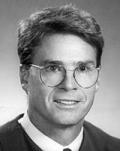
In 2007 and 2008, he was chosen by Minnesota Lawyer as one of their “Attorneys of the Year.” Mr. Bennett is a Perennial “Super Lawyer” and in the 2012 edition of Benchmark Plaintiff, Gaskins Bennett Birrell Schupp LLP was listed as one of six highly recommended plaintiff firms in Minnesota. Benchmark Plaintiff said, “Robert Bennett has built his reputation as an exemplary trial lawyer on the back of the tens of millions of dollars he has recovered on behalf of his clients over the course of his 30-year career.” That publication also called him a “Local Litigation Star.”
Mr. Bennett was born in Yonkers, NY and raised in Minneapolis, MN. He graduated with an A.B. Cum Laude in English from University of Notre Dame and earned his J.D. from University of Minnesota. Mr. Bennett was a varsity wrestler for two years at Notre Dame.
When the Super Lawyer isn’t working, he enjoys fishing, reading and working out. Mr. Bennett fishes in Northern Minnesota and in Canada during the summer and he fishes in Key West, Florida, during the winter. He also enjoys watching hockey at every level. Mr. Bennett roots for the Minnesota Wild, Twins and all of Notre Dame’s teams. Although the attorney admitted that Notre Dame’s national championship loss to the Alabama Crimson Tide was a “tough thing to watch,” he believes the Irish had a great season and there is no shame to lose against ‘bama since they had a great team.
Mr. Bennett is a frequent visitor of Manny’s Steakhouse, a restaurant located in Minneapolis, MN. His favorite book is Ernest Hemingway’s For Whom the Bell Tolls and he is currently reading Gilbert King’s Devil in the Grove.
Mr. Bennett’s Successful Law Career
Does Mr. Bennett have a most memorable law school experience? He recalled living in a house with three members of Herbert Brooks’ 1974 national hockey championship team. Mr. Bennett said it wasn’t the best study atmosphere because there were a lot of distractions. Although he did well in law school, the fearless attorney explained that he preferred practicing law rather than attending law school.
Mr. Bennett discussed why he became an attorney. “I decided while I was in junior high school…that’s what I wanted to do. I knew that I couldn’t do competitive sports for very long, but I wanted to seek that feeling out in a courtroom.”
So what is the best part of his job? “I like standing in front of a jury with the constitution on my side.” Mr. Bennett believes jury trials must remain the way they are. He added, “Most cases settle and that’s the way it is now-a-days.”
What is Mr. Bennett known for professionally? “I am known for handling complicated civil rights and catastrophic injury cases. I am also known for my preparation before and during a trial.” The attorney noted that juries expect multimedia presentation and we try to deal with that expectation persuasively.
What area of the law is he most passionate about? “I really like all of it.” Mr. Bennett expressed that a lawyers ability to get involved in others people’s problems, whether it’s a shooting case or a pool accident case, and how they present the facts, will define their careers.
Is there an area of practice Mr. Bennett would like to develop further into? The trial lawyer said he will continue to represent victims in Section 1983 lawsuits. A Section 1983 lawsuit is a means for bringing a civil claim against government agencies and government officials for violations of federal laws and the U.S. Constitution. Mr. Bennett will also continue to handle catastrophic injury cases.
When asked what his strengths and weaknesses were, he acknowledged, “My strength and weakness is having a bad temper and a stubborn resolve.”
What does Mr. Bennett think about the legal field today? “There are too few jury trials and not enough real trial lawyers. There is also too much compromise before the case even gets to the jury. Often, the real question that needs to get answered doesn’t unless you have a jury trial.” What would he change about jury trials? The candid attorney continued to say, “We need to protect and foster jury trials. Jury trials are dwindling; there aren’t as many as before at the state and federal level. We have to ensure that more, not less, cases are decided by a jury.”
If he weren’t a lawyer, what would he probably be doing? “I don’t know. I would be fishing.” One of the partners at the firm jokingly told Mr. Bennett he would be “Chief of Police” (see police misconduct cases below).
The trial lawyer was asked where he sees himself in five years’ time. “I will be doing the same thing that I am doing today. I always tell lawyers at the firm that it’s a blessing to have your health and family and a passion for what you do.”
What motivates Mr. Bennett to be an attorney everyday? “I like representing underdogs and people against power. I really enjoy it.”
How does the Notre Dame alumnus want to be remembered? “As an honest and tough trial lawyer.”
High Profile Cases
On June 29, 2007, Abigail Taylor sustained severe injuries while swimming in Minneapolis Golf Club’s kiddie pool. Mr. Bennett and Andrew Noel filed a wrongful death lawsuit on behalf of Abigail’s parents. Minneapolis Golf Club acknowledged that it was one of the parties accountable for Abigail’s death and paid the plaintiffs $6,000,000. In addition to the settlement, the club was required to fire two managers who were responsible for the little girl’s horrific death. Sta-Rite Industries, the other defendant, paid an additional settlement to Abigail’s parents.
Was Mr. Bennett pleased with the outcome of this case? The trial lawyer admitted that he took pride in how he handled the Taylor case. Mr. Bennett claimed, “The money that was paid to the family was a piece of the case. As a lawyer, I tried to help make something good out of something bad.” He explained that Abigail’s parents, Scott and Katie Taylor, worked on state and federal safety pool acts. The state act is called the Abigail Taylor Act and there are fifteen other states that passed safety pool acts similar to Minnesota’s Abigail Taylor Pool Safety Act. Mr. Bennett said, “Abigail Taylor didn’t want this to happen to anyone else. When she died, Scott and Katey continued to help pass [new] state and federal safety pool acts. It was an honor to represent her and her family.”
In 2007, he handled the police shooting case involving Duy Ngo, which resulted in a total settlement of $4.5 million. What did Mr. Bennett learn from this case? “Ngo was shot in the chest six times by a tactical officer. The Section 1983 lawsuit proved that the Minneapolis officer used deadly force. I learned that the police enforce accountability on others, but they don’t accept accountability for their misdeeds.”
In 2010, Mr. Bennett took on another police brutality case, Russell v. Taylor (aka the Rickia Russell “flash-bang” grenade case). Minneapolis officers asked for a “no-knock” warrant, but they were denied. The officers then arrived at Russell’s door and were required to knock and state their presence before entering the premises. However, the officers indecorously broke the door down without knocking or stating their presence. One of the officers quickly threw a flash-bang grenade, which landed between Russell’s legs. As a result, she suffered from third and fourth degree burns. Although Russell treated her injuries with skin grafts, she sustained horrible scarring.
Is this a typical police brutality case that he handles at the firm? Mr. Bennett said, “Yes, it is. Minneapolis has a problem with police brutality as long as I have been an attorney. They rarely discipline an officer and certainly not if serious civil liability is involved. I see cases like the Russell ‘flash-bang’ grenade case time after time, year after year.” Mr. Bennett’s clients want officers who use unnecessary force to be fired or at the least disciplined. The attorney tells his clients that officers are not likely to be fired and are rarely disciplined because nobody makes them account for their actions.
Mr. Bennett was asked to discuss the I-35W bridge litigation case. He said he was involved with key members of a consortium, which obtained a $54.2 million settlement on behalf of victims from the Minneapolis 35W bridge collapse. Mr. Bennett stated, “Ultimately, we settled with the engineering firm on the eve of the trial. It was the most collaborative legal case I have ever been involved with.”
After practicing law for more than 30 years, does any case stand out? “A lot of cases stand out, but the next case is what’s on my mind.” Mr. Bennett is currently handling a police brutality case involving the death of twenty-nine year old David Smith. Mr. Smith was an African American who suffered from mental illness. He was also a member of the YMCA until the local authorities showed up and used excessive force against the young man. Mr. Smith caused a disturbance at the YMCA and the police were called in to remove him from the facility.
Instead of talking to Mr. Smith and trying to calm him down, the police grabbed him and tasered him five times. Once on the ground [face on the basketball court], the police stepped on the back of Mr. Smith while they were hand cuffing him. He asphyxiated and would later die at a hospital. According to Mr. Bennett, the police officers were not fired or disciplined. “The case was supposed to go to trial in November. The arrest was captured on high-depth footage three feet away from Mr. Smith. They tried to restart his heart, but his brain wasn’t working. Seven days later, they took Mr. Smith off his respirator. The Chief of Police said the officers involved acted appropriately.”
Mr. Bennett’s Mentors and Mentoring Others, Pro Bono Work, Non Profit Organizations, Greatest Accomplishment and Goals
Does Mr. Bennett have a mentor? Is he a mentor? He replied:
“I was lucky enough to work in a firm with three great lawyers. The firm grew to thirteen lawyers and five of those individuals were members of the American College of Trial Lawyers. They were my mentors. There are fourteen lawyers at Gaskins Bennett Birrell Schupp LLP, and four of our lawyers are members of the American College of Trial Lawyers. Young lawyers who work for me might consider me to be their mentor, but others might think I am their tormentor. But they haven’t left the firm.”
Does Gaskins Bennett Birrell Schupp LLP, handle pro bono work? “We do. I supervise it more than do it myself. Every year we handle a pro bono case. Much of the 35W bridge litigation case was pro bono.”
He has recovered tens of millions of dollars on behalf of his clients over the course of his 30-year career. Is this Mr. Bennett’s greatest achievement as an attorney? “Often times, recovering money is all you can do for your clients, but, more importantly, I am responsible for empowering the powerless.”
Does the Super Lawyer have goals? “Personally, I want to be a good husband, father, grandfather and friend. Professionally, I would like to teach younger lawyers the craft of trial lawyering during their careers.”
Please see this article to find out if litigation is right for you: Why Most Attorneys Have No Business Being Litigators: Fifteen Reasons Why You Should Not Be a Litigator




